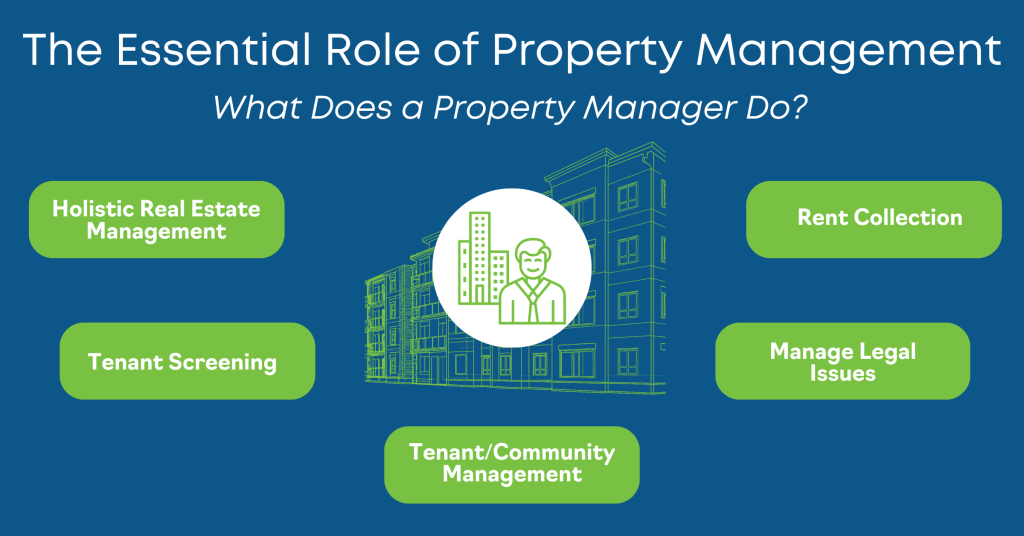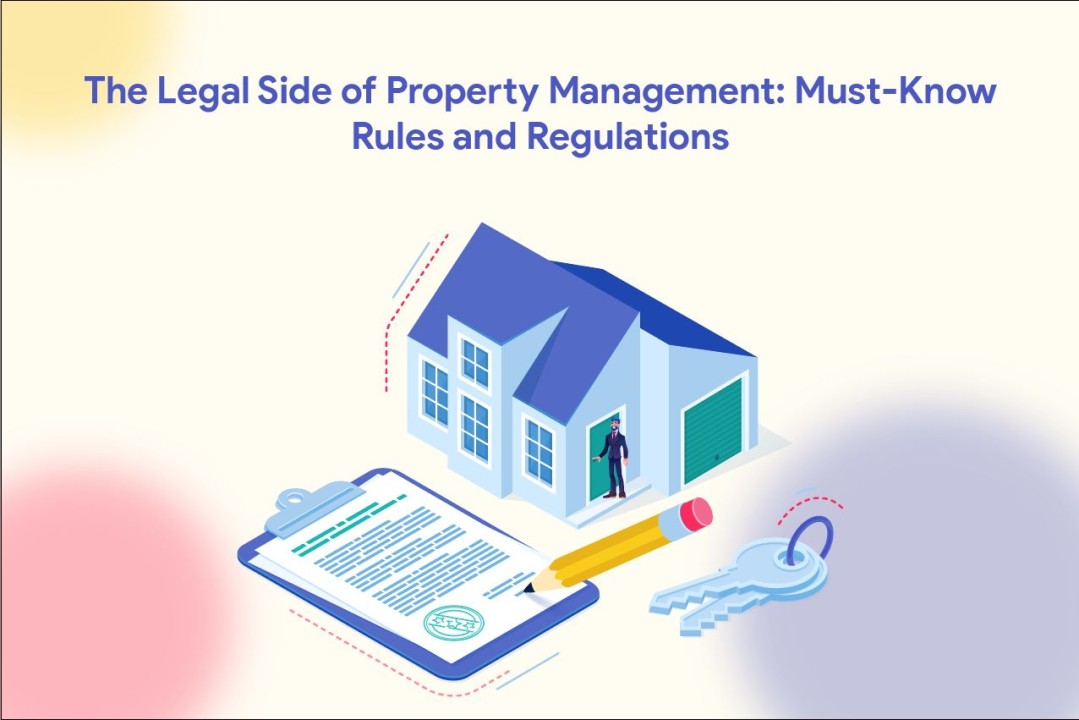Legal Obligations of Property Managers: A Comprehensive Guide
As a property manager, you play a critical role in ensuring that properties are well-maintained, tenants are satisfied, and legal requirements are met. However, one of your most important responsibilities is understanding and adhering to the legal obligations that come with managing a rental property. Navigating the complex web of local, state, and federal laws is essential to maintaining a successful, compliant property management business.
In this guide, we will explore the key legal responsibilities of property managers, the importance of staying compliant, and provide actionable tips to ensure you fulfill your obligations effectively.
Why Legal Compliance is Crucial for Property Managers
Property managers are responsible for more than just keeping properties in good condition or collecting rent. They are also required to ensure that both the landlord and the tenants comply with various legal standards. Violating these laws can result in penalties, lawsuits, and damage to your reputation. Therefore, understanding your legal obligations is essential to mitigate risks and run a smooth operation.
In addition to avoiding legal trouble, complying with laws helps to:
– Protect tenant rights: Ensuring that tenants are treated fairly and legally.
– Ensure property safety: Following health and safety codes to maintain livable conditions.
– Foster strong landlord-tenant relationships: Building trust by acting professionally and legally.
Key Legal Obligations of Property Managers
Property managers must comply with a wide range of legal responsibilities related to tenant relations, property maintenance, fair housing, and more. Let’s break down some of the most important areas of legal compliance.
1. Fair Housing Laws
Under federal law, property managers must comply with the Fair Housing Act (FHA), which prohibits discrimination in housing based on:
– Race
– Color
– Religion
– Sex
– National origin
– Disability
– Familial status (families with children)
Property managers must ensure that rental practices, including advertising, tenant screening, and lease agreements, do not violate these protected classes. Discriminating against tenants or prospective tenants can result in serious legal consequences, including hefty fines and lawsuits.
Tip: Always use neutral language in ads and marketing materials. For example, instead of saying “perfect for young professionals,” say “suitable for anyone looking for a cozy space.”
2. Lease Agreements and Contract Law
A well-drafted lease agreement is one of the most important documents in property management. It outlines the terms of the rental arrangement, including rent payments, security deposits, maintenance responsibilities, and duration of the lease.
As a property manager, you are responsible for:
– Ensuring the lease complies with local, state, and federal laws.
– Addressing the rights and responsibilities of both the landlord and tenant.
– Updating the lease regularly to reflect any changes in laws or regulations.
A strong lease agreement protects both the tenant and the landlord and ensures that everyone is on the same page.
Tip: Always use professional lease templates that are up-to-date with the latest laws in your area. Many property management software tools offer customizable lease templates that are compliant with legal standards.
3. Property Maintenance and Habitability Laws
Property managers must ensure that the property remains habitable throughout the lease term. The law requires landlords to maintain essential systems, such as plumbing, heating, and electrical, and provide basic services such as water, sanitation, and trash removal.
In addition, property managers must:
– Respond promptly to maintenance requests.
– Ensure that the property complies with local housing codes, which often include requirements for the condition of plumbing, heating, and appliances.
– Keep the property safe and sanitary for tenants.
Failure to meet habitability standards can lead to tenant complaints, legal action, and even rent withholding by tenants until repairs are made.
4. Tenant Screening and Privacy Laws
Property managers have the duty to conduct proper tenant screenings. This involves checking potential tenants’ backgrounds, including credit reports, criminal histories, and rental history. However, tenant screening must comply with the Fair Credit Reporting Act (FCRA) and state privacy laws. This means that:
– Tenants must be informed and give consent before you perform a background check.
– All information must be kept confidential and not shared with unauthorized parties.
– If you reject a tenant based on their credit report, you must provide them with an adverse action notice.
Not following these guidelines can expose you to legal claims, including claims of privacy violations.

5. Eviction Laws
Evictions are often the most challenging part of property management. Property managers must follow a legal procedure to evict tenants who fail to pay rent or violate lease terms. This includes:
– Providing the proper notice (e.g., a pay or quit notice for non-payment of rent).
– Filing for eviction in court and attending the hearing.
– Using the sheriff’s department or law enforcement for physically removing tenants, if necessary.
Illegal evictions (such as self-help evictions) can result in lawsuits or penalties, so it’s crucial to follow every step of the legal eviction process.
Tip: Keep detailed records of all communications, notices, and actions taken during the eviction process.
6. Security Deposit Laws
Security deposits are a common source of dispute between landlords and tenants. Property managers must comply with state laws governing the amount a tenant can be charged, how it should be held, and how it must be returned. Many states require landlords to provide an itemized list of deductions from the deposit (for damages, unpaid rent, etc.).
Failure to return the security deposit in a timely manner or to provide an accurate accounting can lead to legal actions by tenants.
7. Rent Control and Rent Regulations
In certain areas, rent control laws govern how much a landlord can charge for rent. Property managers must be familiar with these regulations and ensure that they don’t violate rent control limits. This is especially important in cities with high demand for rental housing, where rent increases are often capped by law.
Tip: Stay informed about local rent regulations to avoid violating rent control laws. Ensure you are aware of rent increase limits, required notices, and other stipulations.
8. Insurance Requirements
Property managers are often responsible for ensuring that the property is covered by adequate insurance. This typically includes:
– Property insurance to cover damages from fire, floods, or other natural disasters.
– Liability insurance in case a tenant or visitor is injured on the property.
– Workers’ compensation insurance if you hire staff for property maintenance.
Insurance not only protects you as a property manager but also safeguards the landlord from significant financial loss due to unforeseen events.
External Resources:
FAQs About Legal Obligations of Property Managers
1. What are the most common legal mistakes made by property managers?
Common mistakes include violating fair housing laws, failing to provide adequate maintenance, and not properly handling security deposits.
2. How can property managers avoid lawsuits?
To avoid lawsuits, property managers should adhere to local, state, and federal laws, maintain clear records, provide proper documentation, and seek legal advice when necessary.
3. Do property managers need legal insurance?
Yes, property managers should consider professional liability insurance to protect themselves from legal claims.
4. What is the role of property managers in tenant disputes?
Property managers must mediate tenant disputes fairly and professionally, adhering to lease agreements and local laws.
Conclusion
As a property manager, fulfilling your legal obligations is essential for the smooth operation of your business and maintaining positive relationships with tenants. From complying with fair housing laws to ensuring habitability standards, understanding your responsibilities will help you avoid costly legal issues and ensure long-term success. Stay informed, follow best practices, and consult with legal professionals as needed to navigate the complex legal landscape of property management.
For more information on staying compliant, check out these resources:
– Legal Compliance for Property Managers


